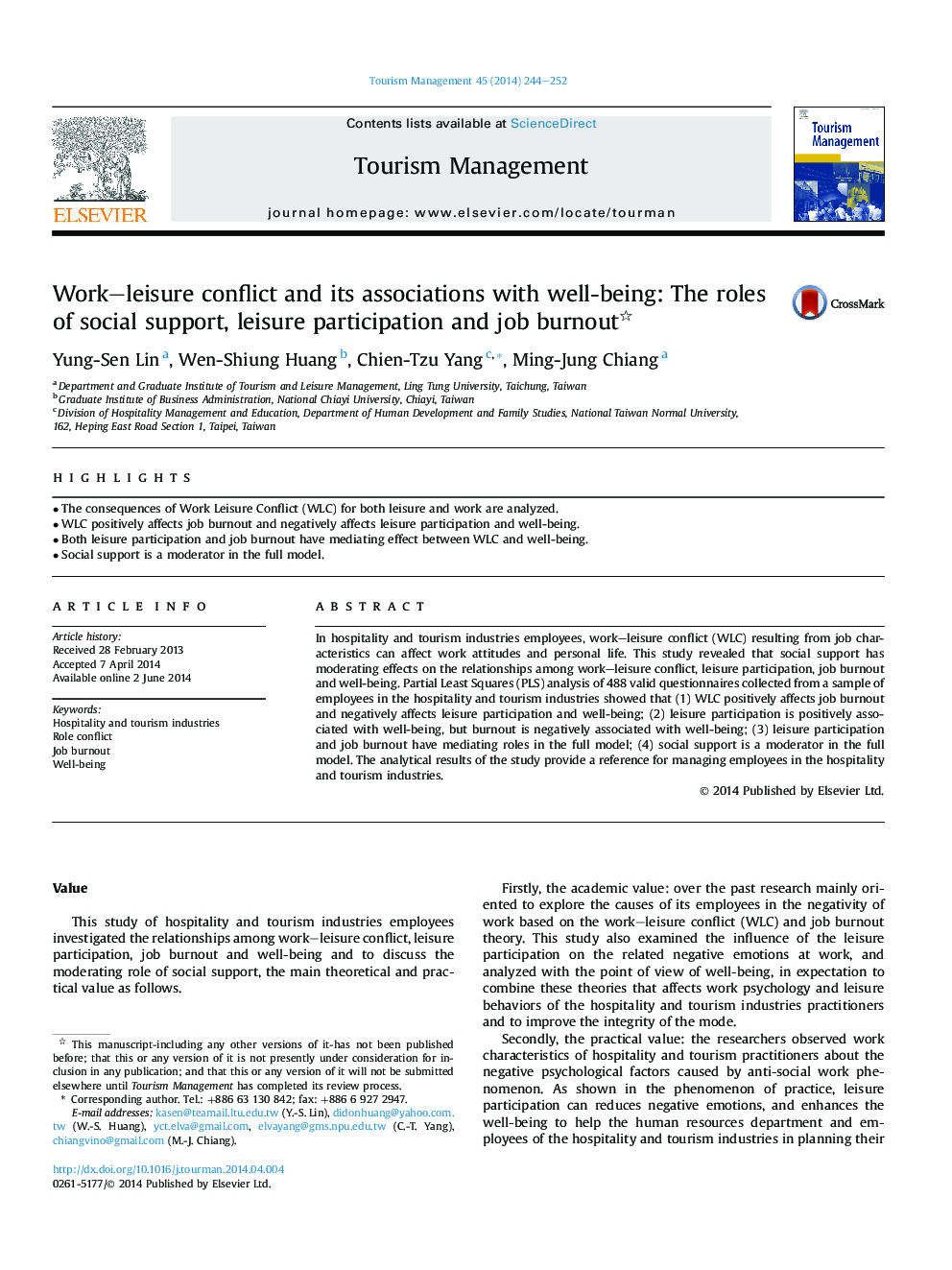| Article ID | Journal | Published Year | Pages | File Type |
|---|---|---|---|---|
| 1012074 | Tourism Management | 2014 | 9 Pages |
•The consequences of Work Leisure Conflict (WLC) for both leisure and work are analyzed.•WLC positively affects job burnout and negatively affects leisure participation and well-being.•Both leisure participation and job burnout have mediating effect between WLC and well-being.•Social support is a moderator in the full model.
In hospitality and tourism industries employees, work–leisure conflict (WLC) resulting from job characteristics can affect work attitudes and personal life. This study revealed that social support has moderating effects on the relationships among work–leisure conflict, leisure participation, job burnout and well-being. Partial Least Squares (PLS) analysis of 488 valid questionnaires collected from a sample of employees in the hospitality and tourism industries showed that (1) WLC positively affects job burnout and negatively affects leisure participation and well-being; (2) leisure participation is positively associated with well-being, but burnout is negatively associated with well-being; (3) leisure participation and job burnout have mediating roles in the full model; (4) social support is a moderator in the full model. The analytical results of the study provide a reference for managing employees in the hospitality and tourism industries.
